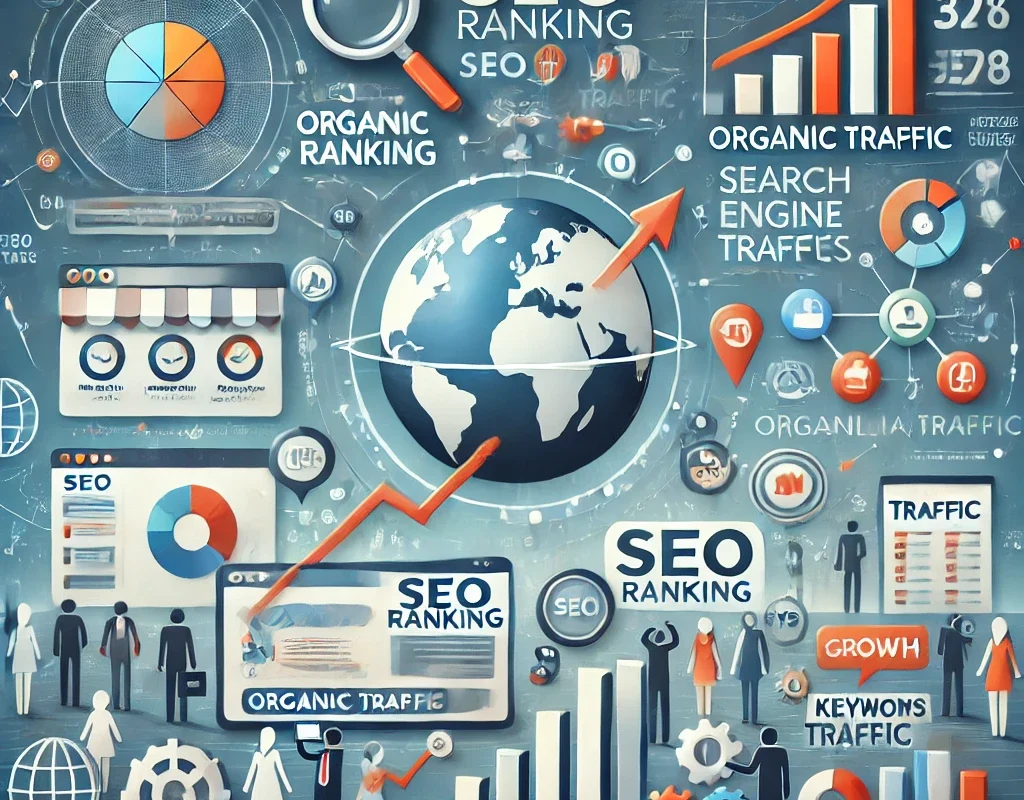In today’s competitive digital landscape, businesses need every edge they can get to stay visible and relevant online. One of the most effective ways to enhance your online presence is through content marketing, particularly when combined with SEO (Search Engine Optimization). Content marketing doesn’t just attract your audience; it also serves as a powerhouse for boosting your SEO efforts, driving higher search engine rankings, and generating more organic traffic.
While SEO involves the technical aspects of improving your site’s visibility in search engines, content marketing focuses on delivering valuable, relevant, and engaging content that aligns with the needs and interests of your target audience. Together, they create a formidable strategy that not only attracts visitors but also converts them into loyal customers.
Content Marketing Boost SEO
Content marketing is a vital tool for driving SEO success. Search engines like Google reward websites that provide useful, authoritative, and regularly updated content. Content marketing allows you to produce various forms of content — blog posts, articles, videos, infographics — that cater to different aspects of SEO.
When you create content that’s optimized for relevant keywords, answers user questions, and keeps readers engaged, it leads to higher rankings on search engine results pages (SERPs). Moreover, content marketing helps establish your brand as an authority in your field, encouraging users to stay on your site longer and reducing your bounce rates. Search engines interpret these metrics as signals that your site is providing value, which can further improve your rankings.
SEO and Content Marketing Synergy
It’s easy to think of SEO and content marketing as separate strategies, but they work best when combined. SEO brings users to your website through organic search, while content marketing engages and converts them. When you understand how these two elements work together, you can create an effective, holistic approach to online marketing.
The synergy between SEO and content marketing comes from how each supports the other. For example, SEO requires keywords, backlinks, and user engagement to thrive, all of which are influenced by the quality and relevance of your content. Similarly, content marketing needs SEO for visibility—without strong SEO practices, even the best content won’t reach your target audience.
Understanding the SEO Basics
Before diving into how content marketing supports SEO, it’s essential to understand some key SEO basics. These include:
- Keyword Research: Identifying terms and phrases that users are searching for.
- On-Page SEO: Optimizing individual pages with proper meta tags, titles, and internal linking.
- Off-Page SEO: Building authority through external links and brand mentions.
- Technical SEO: Ensuring that your website is crawlable, has fast loading times, and is mobile-friendly.
Keyword Optimization
Keywords are the foundation of SEO, and content marketing is one of the best ways to strategically use keywords. By conducting keyword research, you can identify high-value terms that resonate with your audience. When you incorporate these keywords naturally into your content — such as in headlines, subheadings, and throughout the body — you’re telling search engines that your content is relevant to those search queries.
However, it’s essential to avoid keyword stuffing. Instead, focus on creating content that provides real value and integrates keywords in a way that feels organic. Long-tail keywords, which are more specific and often less competitive, are particularly effective in content marketing, as they cater to users with clear intent.
Creating High-Quality Content
Search engines are increasingly prioritizing high-quality content over keyword density. Simply adding keywords to poorly written content won’t help your SEO. To boost your rankings, your content must be:
- Original: Unique content that offers fresh insights.
- Informative: Content that answers questions or solves problems for your audience.
- Engaging: Well-structured and easy to read with engaging headlines, subheadings, and multimedia elements.
Well-researched, authoritative content not only ranks better but also encourages users to share it, enhancing your off-page SEO. Creating content that aligns with user intent — what users are genuinely searching for — is the key to winning both search engines and your audience.
User Intent and SEO
Search engines like Google have evolved to prioritize content that matches user intent — what users expect to find when they enter a query. Whether users are looking for information, solutions to problems, or products to buy, your content should provide an answer.
When crafting your content, consider the different types of user intent:
- Informational: Users are looking for knowledge or understanding.
- Navigational: Users want to visit a specific website or page.
- Transactional: Users are ready to make a purchase or take action.
By tailoring your content to these different intents, you can satisfy your audience’s needs and improve your search rankings. Answering questions directly in your content, creating how-to guides, and offering product comparisons are excellent strategies to meet different intents.
The Importance of Content Freshness
Google rewards websites that update their content regularly. Fresh content signals to search engines that your website is active, relevant, and continually providing up-to-date information. By producing new blog posts, revisiting old articles, or updating evergreen content, you can maintain a fresh online presence.
Content freshness also encourages users to return to your site, increasing traffic and engagement, both of which positively impact SEO. Additionally, updating old content with new information or keywords can breathe new life into it and improve its rankings.
You can also read; How to Perform Keyword Research for Better SEO Results
Internal Linking for SEO
Internal links are a simple yet powerful way to improve your website’s SEO. By linking to other relevant pages within your site, you help users navigate more easily and keep them on your site longer. These internal links also allow search engines to crawl your site more efficiently and understand the hierarchy and relevance of your content.
Content marketing gives you ample opportunities to create natural internal links, particularly in blog posts, where you can reference older articles or guide readers to other useful resources on your website. This tactic not only improves user experience but also boosts SEO by distributing link equity across your site.



